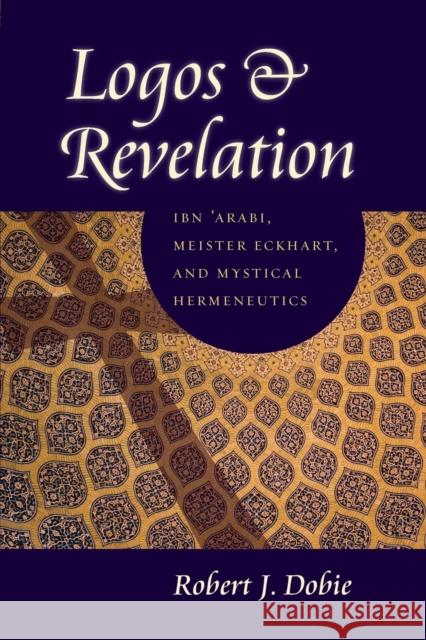Logos & Revelation: Ibn 'Arabi, Meister Eckhart, and Mystical Hermeneutics » książka
Logos & Revelation: Ibn 'Arabi, Meister Eckhart, and Mystical Hermeneutics
ISBN-13: 9780813216775 / Angielski / Miękka / 2009 / 328 str.
What is 'mysticism' and, most importantly, how do the great mystical writers understand it? "Logos and Revelation" seeks to answer this question by looking closely at the writings of two of the most prominent medieval mystical writers: the Muslim, Ibn 'Arabi (1165-1240) and the Christian, Meister Eckhart (1260-1328). Through his careful examination of the writings of these men, Robert J. Dobie discovers that mystical reflection and experience are intrinsically and essentially tied to the 'mystical' or 'hidden sense' of the sacred text. Mystical reflection and experience are, therefore, at their roots interpretive or hermeneutical: the attempt by the mystical exegete to uncover through 'imaginative reading' or philosophical analysis the inner meaning of revelation. What emerges is a theology of the Word (logos, verbum, ratio, kalima) in which it is the task of the mystical exegete to appropriate inwardly the divine Word that speaks in and through both the sacred text and all creation. What the mystical writer discovers is an increasingly fitting harmony between the text of revelation, properly interpreted and understood, and the inner dynamic of the soul's reaching out beyond itself toward the transcendent. In contrast to modern notions of the phenomenon, Dobie argues that mystical reading is not about cultivating extraordinary personal experiences. Nor does it take readers doctrinally outside of, or beyond, religious traditions. Rather, mystical reading and listening should take us deeper into the sacred text and sacred tradition. Most strikingly, strong analogies emerge between how Christians and Muslims appropriate inwardly this divine Word, which forms a real and solid basis for interfaith dialog founded on a mutual listening to the divine logos.











